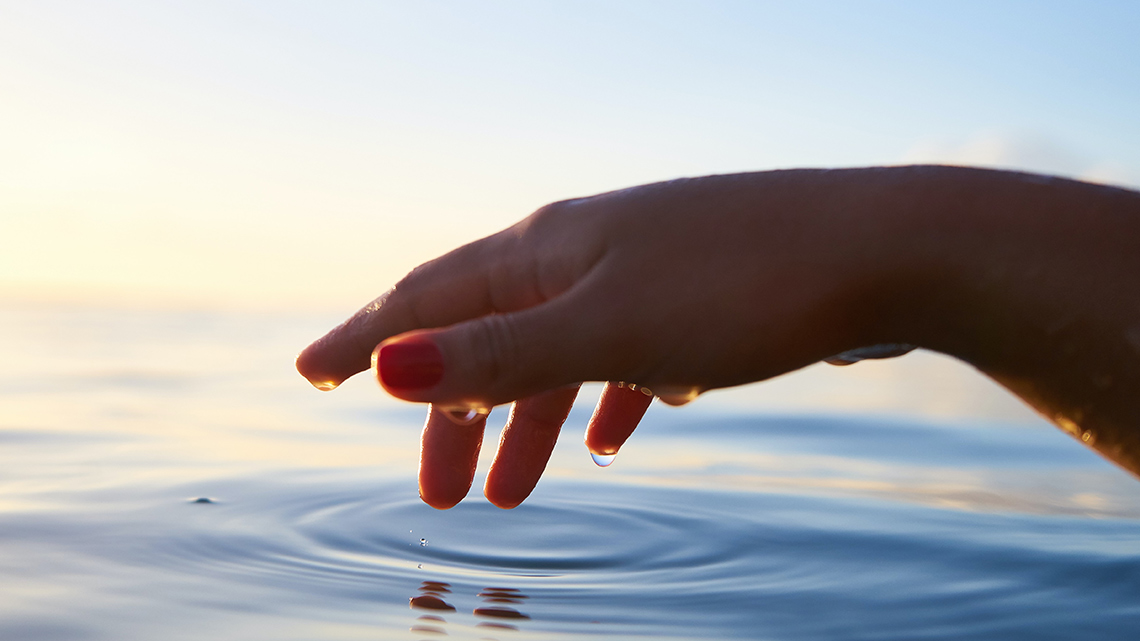Rachel's Vineyard is a healing ministry for those who are suffering from the trauma of abortion.

As we profiled on our ‘Need help after an abortion?‘ page, Rachel’s Vineyard is a healing ministry for those who are suffering from the trauma of abortion, or have been closely connected to someone who is – whether they’re siblings, grandparents, aunts, cousins – Rachel’s Vineyard recognises that abortion impacts the wider family and community. The charity also supports those that have worked in the abortion industry and subsequently regret the part they have played in abortion decisions.
Want to know more? You can visit the charity’s website or listen to an interview, recorded in 2022, with Rachel Mckenzie, Director of Rachel’s Vineyard.

Rachel Mackenzie is here in the studio today. She’s the director of Rachel’s Vineyard, one of the projects that we financially support through the Day for Life fund. So, Rachel, can you tell us a little bit about what Rachel’s Vineyard is?
Rachel’s Vineyard supports those that are traumatised from abortion, whether it be the mother or the father or the grandparents or any siblings, and also those that have worked in the abortion industry and regret it.
And what sort of support do you offer in Rachel’s Vineyard? What does that look like?
The main support, that thankfully through the Day For Life grant we can help more and more women and men, is through the Rachel’s Vineyard retreats. So on a retreat, it’s a place where you can get away from the world and really immerse yourself in the grief and the process that’s needed to heal. On that weekend retreat, you’re supported to look at your abortion story and to go through the stages of grief until, eventually, we come to a place of healing.
The majority of the healing does happen at Rachel’s Vineyard, but there’s also lots of other support that these men and women need too. The support that they need can be counselling or psychotherapy if somebody’s been assaulted or abused in any way. We also help people and sponsor them to go to Catholic events like Youth 2000 and annual Rachel’s Vineyard Alphas, so people get a better connection with God. We also support those in the early stages of grieving where they’ve just had an abortion and they immediately regret it. So we journey with people for as long as they need it – before and after a retreat.
The retreats are a central part of the Rachel’s Vineyard ministry and obviously you help people process the grief and the trauma of abortion – their own, or perhaps people related to them within their own story. What are the highlights? Where do you see God working? Is there anything that surprises you on a retreat like that?
I think it’s the main reason why I carry on doing these retreats, because it’s a place where they really get to meet God. On the Friday, I always say to the participants, “you’re going to heal on this retreat, not because of me, but in spite of me”, because God turns up and he turns up in a huge way, in a very powerful way. My highlight is always that moment, that “An ha!” moment when they realise what’s really happened, who’s really died and how they are loved, even by their children and by God, and they can actually begin to love themselves. So that’s one of the highlights for me.
What would you say to a man or a woman listening to this podcast who’s struggling with the hurt of abortion?
I’d tell the men and women that hurt – the mums and dads out there, or the grandparents – firstly they’re not alone and that they are already loved and they can get forgiveness, they haven’t committed the unforgivable sin and they just need a place where they can work through that pain and be supported along the way. So I’d say to those men and women, “I’m here, Rachel’s Vineyard’s, here to help you and to support you in any way we can.”
Around 200,000 abortions are committed every year in the UK. How many people would you see on a retreat? What sort of need is there for healing from abortion? A lot of women might say, “my body, my choice, I don’t need a ministry like that.” What do you see at the coal face running these retreats? Does abortion cause hurt and harm to women, men and society?
Absolutely. Abortion hurts all of us, whether we know it or not. I lost Jude and Paul, my own sons, through abortion. My children were killed when I just thought it was ‘my body, my choice’. I thought I had this problem and I just wanted the problem to go away. But abortion doesn’t solve the problem of me not being a mum – it just made me a mum to children that have died and are in heaven now. When I look at the statistics, I also think, not only have we lost the children, but the mums and dads, what’s happened to them? What stage of grief are they stuck in? And I love them wherever they’re at.
I imagine it’s not the easiest of areas to work in and the Church absolutely has to be in that space and accompanying people in their trauma and their hurt. One of the things that you’ve often spoken about, at least in conversations I’ve had with you, is the need to preach truth and love. You’ve said that’s the heart of your ministry. Do you want to explain a little bit more about that?
If we’re suffering, if we’re grieving, then we need to know what the cause of that is and we need to recognise and own our part that we played in an abortion story. It’s in those moments where we are given truth and love together that we can heal. I know from my own story, it was a priest that lovingly said to me, “Rachel, it’s not, ‘you could have been a mum’, you are a mum.” It’s in those moments of truth and love that the healing can really take place.
I know many, many priests that are so worried and concerned, and it comes from such a loving place, but they’re concerned that if they talk about abortion in a homily or from the pulpit, they’re going to really offend the post -abortive women and men out there. But it’s already been done to us. We’re already hurt and actually the silence is hurting us more. So it’s a wonderful opportunity for priests to really minister to these women and men and to say, “we’re so sorry that you’ve lost your child through abortion”, and be there for them.
One of the misconceptions people have about the Catholic Church is that its priests, its bishops, its cardinals, the Pope, men in Rome telling women what to do with their bodies. But what you’re saying here is they have a really fundamental part in terms of men and women’s healing journey from abortion.
Absolutely. On every team of Rachel’s Vineyard, there is a priest. And it’s a hand-picked, loving priest – we’ve got so many of them. They not only give the sacraments at Rachel’s Vineyard to the Catholics, but they show what a good man looks like, because often these women are very much hurt by men. So these wonderful priests can show just what a good man looks like and also be the face of Jesus to these women and men.
We take a collection on the Day for Life Sunday, which we celebrate on the third Sunday in June, and it funds a number of projects across the country, big projects and small projects like Rachel’s Vineyard. How has this financial support contributed to your ministry and work?
If it wasn’t for the grant, we wouldn’t be able to put on the amount of retreats we do. I would actually be going back to teaching, that was my job before, and I’ve had to give up my work to be able to really focus on the amount of men and women that are coming through – there are hundreds every single year, and to support them holistically and appropriately, we wouldn’t be able to do it without this grant.
Again, just going back to misconceptions people have about the Church, I just think the ministry just really exemplifies the Church as ‘mother’ wanting to hold, to heal, to walk alongside people, and we are really happy to be able to support that with the Day for Life fund, where can we find out more about your work and your ministry if anyone is listening today and needs some support?
If you go onto our website, rachelsvineyard.org.uk, and go to the dates, you’ll see when the next retreats are available. But don’t be put off if the next retreat is months away, because we journey with people before and after. There’s national phone numbers on there, that’s my number, and there are other contacts in Scotland, and in Essex that can help you too.